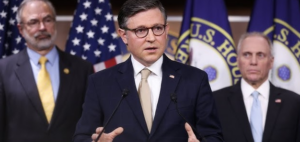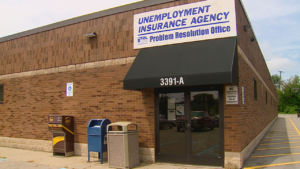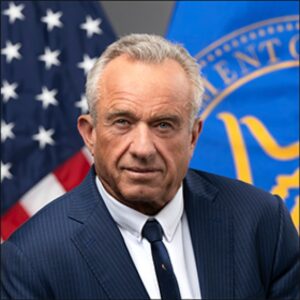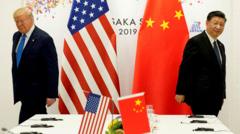As Robert F. Kennedy Jr. gains momentum in Washington, his plans for stringent reforms could reshape the landscape of the health and food industries, invoking both concern and strategic recalibration among corporate stakeholders.
Regulatory Overhaul on the Horizon: RFK Jr.'s Influence Rattles Food and Health Industries
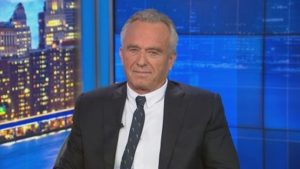
Regulatory Overhaul on the Horizon: RFK Jr.'s Influence Rattles Food and Health Industries
Robert F. Kennedy Jr.'s proposed regulatory reforms are stirring uncertainty in the food and health sectors.
Kennedy is advocating for measures that include stringent pesticide regulations and a reevaluation of vaccine safety protocols, which could spell financial trouble for companies across various sectors. His proposals aim to ban highly processed foods in school settings and overhaul key federal regulatory agencies. These policies represent a stark challenge to established industry practices and threaten multi-billion dollar revenue streams.
At the heart of this shifting dynamic is K Street, Washington D.C.’s lobbyist hub, where unease among corporate leaders has become palpable. John Strom, a special counsel at Foley and Lardner, emphasized a cautious stance among corporations, noting that a “wait-and-see approach” is prudent as many in the food and health sectors avoid direct confrontations with Kennedy. “It’s important not to start off on the wrong foot,” he advised, highlighting the desire among companies to maintain cooperative channels rather than adopt defiant measures.
Kennedy's initiatives set the stage for potential repercussions across the agricultural industry, particularly with increased pesticide regulations that may jeopardize profits. Furthermore, a potential ban on ultra-processed foods could necessitate shifts throughout food production and distribution systems. The health sector is not exempt from these disruptions either; Kennedy’s focus on vaccine safety data poses additional complexities for companies already navigating a sensitive landscape.
The urgency for industry responses has escalated, with many companies scrambling to forge connections with Kennedy to mitigate potential fallout from his proposed reforms. Their collective aim is clear: maintain collaborative ties to weather the anticipated changes without alienating extremely influential figures.
Amid the backdrop of President Trump’s support amplifying Kennedy’s reach, the industries affected find themselves grappling with a climate of uncertainty. Lobbyists report an uptick in frantic inquiries from clients seeking strategic guidance, aware that the prospect of sweeping regulatory changes could significantly alter the status quo. As the circumstances continue to evolve, whether Kennedy’s regulatory ambitions will gain ground remains uncertain, yet the ripples of potential reform are already reverberating throughout the food and health landscape.
At the heart of this shifting dynamic is K Street, Washington D.C.’s lobbyist hub, where unease among corporate leaders has become palpable. John Strom, a special counsel at Foley and Lardner, emphasized a cautious stance among corporations, noting that a “wait-and-see approach” is prudent as many in the food and health sectors avoid direct confrontations with Kennedy. “It’s important not to start off on the wrong foot,” he advised, highlighting the desire among companies to maintain cooperative channels rather than adopt defiant measures.
Kennedy's initiatives set the stage for potential repercussions across the agricultural industry, particularly with increased pesticide regulations that may jeopardize profits. Furthermore, a potential ban on ultra-processed foods could necessitate shifts throughout food production and distribution systems. The health sector is not exempt from these disruptions either; Kennedy’s focus on vaccine safety data poses additional complexities for companies already navigating a sensitive landscape.
The urgency for industry responses has escalated, with many companies scrambling to forge connections with Kennedy to mitigate potential fallout from his proposed reforms. Their collective aim is clear: maintain collaborative ties to weather the anticipated changes without alienating extremely influential figures.
Amid the backdrop of President Trump’s support amplifying Kennedy’s reach, the industries affected find themselves grappling with a climate of uncertainty. Lobbyists report an uptick in frantic inquiries from clients seeking strategic guidance, aware that the prospect of sweeping regulatory changes could significantly alter the status quo. As the circumstances continue to evolve, whether Kennedy’s regulatory ambitions will gain ground remains uncertain, yet the ripples of potential reform are already reverberating throughout the food and health landscape.









